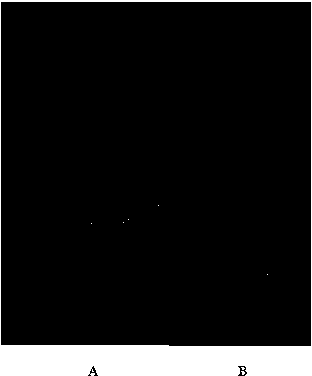Method for increasing absorption rate of rice to phosphorus
An absorption rate and rice technology, applied in the field of plant genetic engineering, can solve the problems of waste of phosphate fertilizer resources and environmental pollution, and achieve the effect of reducing the application of phosphate fertilizer, increasing the total surface area of roots, and improving nutrient utilization.
- Summary
- Abstract
- Description
- Claims
- Application Information
AI Technical Summary
Problems solved by technology
Method used
Image
Examples
Embodiment 3
[0062] Example 3. Transgenic rice tolerance to low phosphorus experiment
[0063] 1. Low-phosphorus culture of transgenic rice
[0064] The homozygous transgenic T4 rice was used as the material, and the non-transgenic pair Guangminghui 86 was used as the control. Take plump rice seeds, soak them at room temperature, put them in a 30°C incubator for 2 days to accelerate germination after 2 days, and after the seeds germinate, move the seedlings into medium containing 1 / 2 MS for 5 days. The seedlings with a height of about 5 cm are moved into a soilless culture box with quartz sand as a matrix containing liquid medium with different phosphorus concentrations for cultivation. The cultivation box is placed in a rainproof, ventilated and sunny plastic greenhouse. The quartz sand was pre-soaked with dilute hydrochloric acid for 5 days, and then rinsed with deionized water several times to wash off the hydrochloric acid and measure the pH value. During the cultivation period, th...
PUM
 Login to View More
Login to View More Abstract
Description
Claims
Application Information
 Login to View More
Login to View More - R&D
- Intellectual Property
- Life Sciences
- Materials
- Tech Scout
- Unparalleled Data Quality
- Higher Quality Content
- 60% Fewer Hallucinations
Browse by: Latest US Patents, China's latest patents, Technical Efficacy Thesaurus, Application Domain, Technology Topic, Popular Technical Reports.
© 2025 PatSnap. All rights reserved.Legal|Privacy policy|Modern Slavery Act Transparency Statement|Sitemap|About US| Contact US: help@patsnap.com



